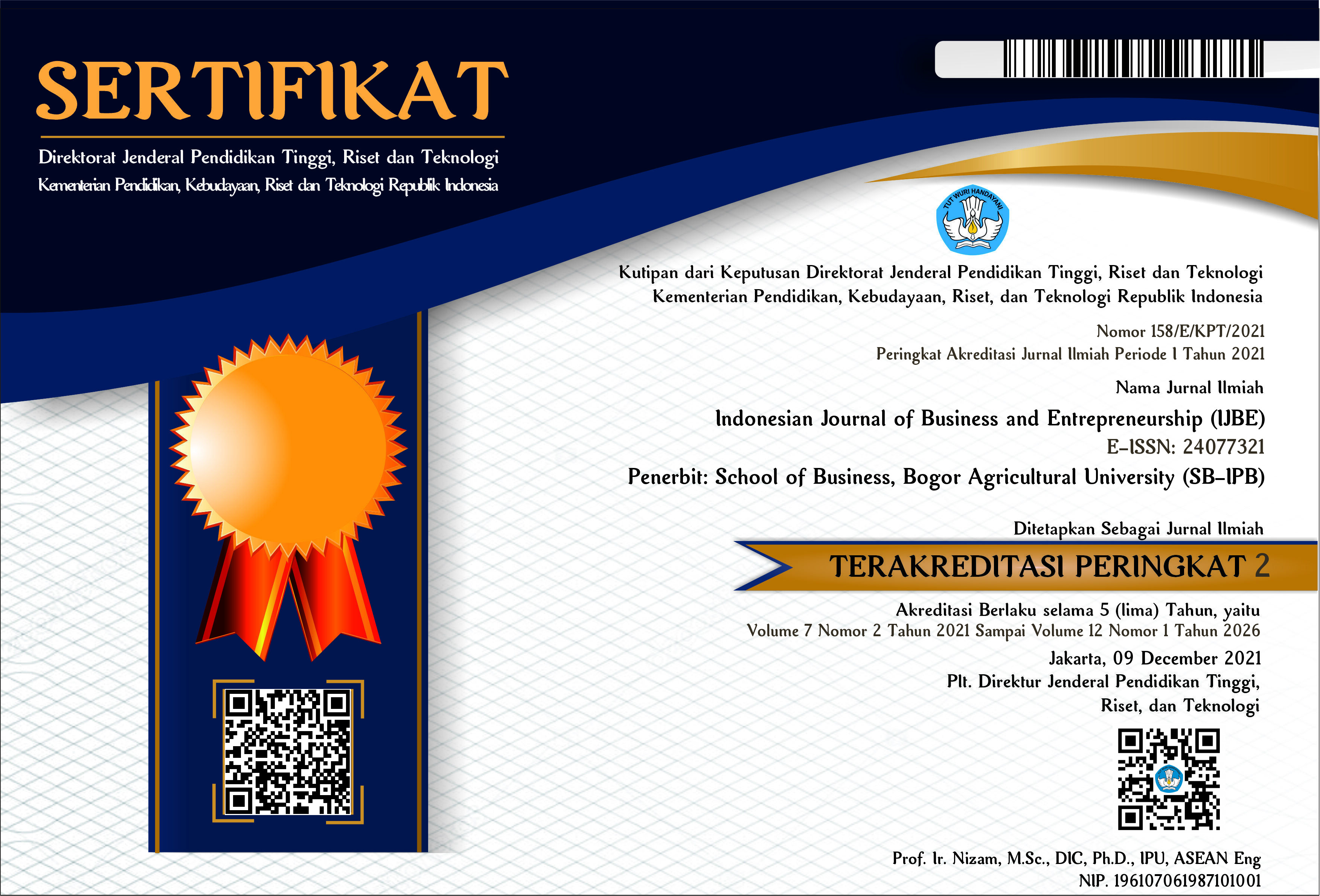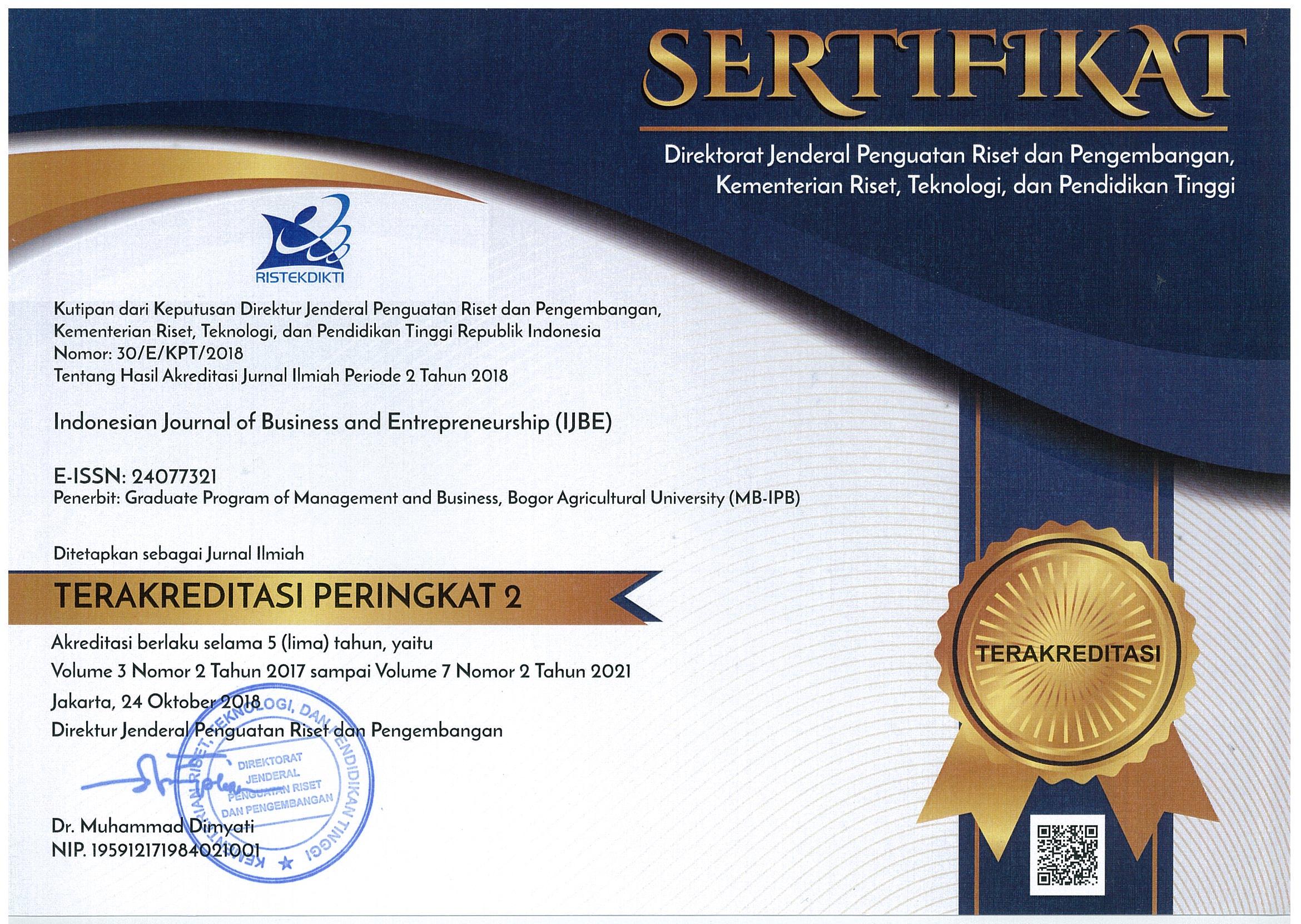How a Hybrid Firm Implement Institutional Logic to Develop Household Waste Ecopreneurship
Abstract
The objective of this research is to increase the understanding of the ecopreneurial actions. A single qualitative case study is used to investigate an environmental hybrid firm in implementing institutional logic to develop household waste ecopreneurship in Surakarta City. In addition, the data were analyzed using an interactive model which consisted of data reduction, data presentation, drawing conclusions, and verification. The research findings showed that the ecopreneur is implementing dual logics, combining ecological and economic logics into one business perspective. The commitment to dual logic implies on the ecopreneurial firm and how the hybrid firm deal with the complexity within and outside the organization. The ecopreneur also works actively to improve their circumstances, in terms of affecting the field to better prioritize the ecological logic by raising public engagement and developing eco-innovation product. Ecopreneur’s commitment in dual logic was implemented in some business’s strategy such as production, technology, human resources, marketing, and finance.
Keywords: binstitutional logic, hybrid firm, ecopreneurship, household waste







